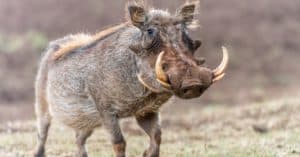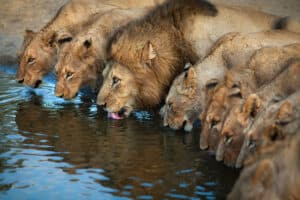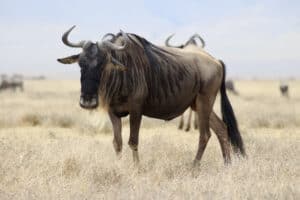When you’re thinking of purchasing a cut of expensive meat for a special occasion, it would make sense that Wagyu beef comes to mind. This special meat is often praised for its unique flavor profile, capturing a kind of tenderness and buttery flavor that few others can replicate. However, this luxurious treat doesn’t come without a hefty price tag! In this article, we’ll delve into the world of Wagyu, including the reasons why this popular meat is so notably expensive. From its ancient beginnings to its modern-day uses, learn exactly why Wagyu has earned such an elegant name for itself in the culinary world.
What Is Wagyu Beef?
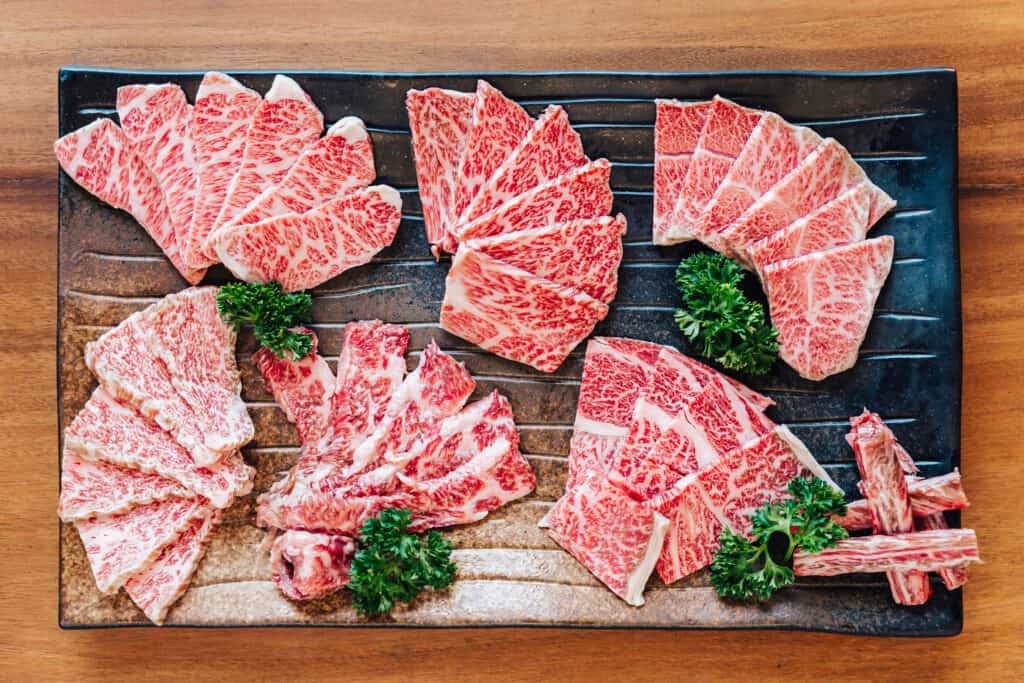
What makes this beef unique isn’t the cut but rather the kind of cow it originates from.
©Artit Wongpradu/Shutterstock.com
Wagyu beef is beef that is produced from a very specific type of cow. This cow falls into one of four breed types. Japanese Black, Japanese Brown, Japanese Shorthorn, or the rarest of the bunch, Japanese Polled. While all of these breeds produce the meat, the Japanese Black is the one that people most commonly associate the high-end beef with.
Unlike a cut of meat like a ribeye or sirloin, Wagyu beef doesn’t actually come from a particular part of a cow. Instead, it refers to a particular kind of cow. In particular, it is derived from the aforementioned breeds. You see, these breeds are raised and cared for under specific conditions meant to promote intense marbling. This marbling, which is actually just streaks of fat within the muscle tissue, is the signature staple of Wagyu beef. These fat streaks begin to melt under certain temperatures, and the melting process is what creates the flavor that so many people enjoy.
Although, that doesn’t mean that you can’t find different cuts of Wagyu. Whether you’re interested in ground beef, steaks, or roasts, those can all be procured in some way or another. The prices of those different cuts, however, will vary based on where the meat has been sourced.
The History of Wagyu Beef
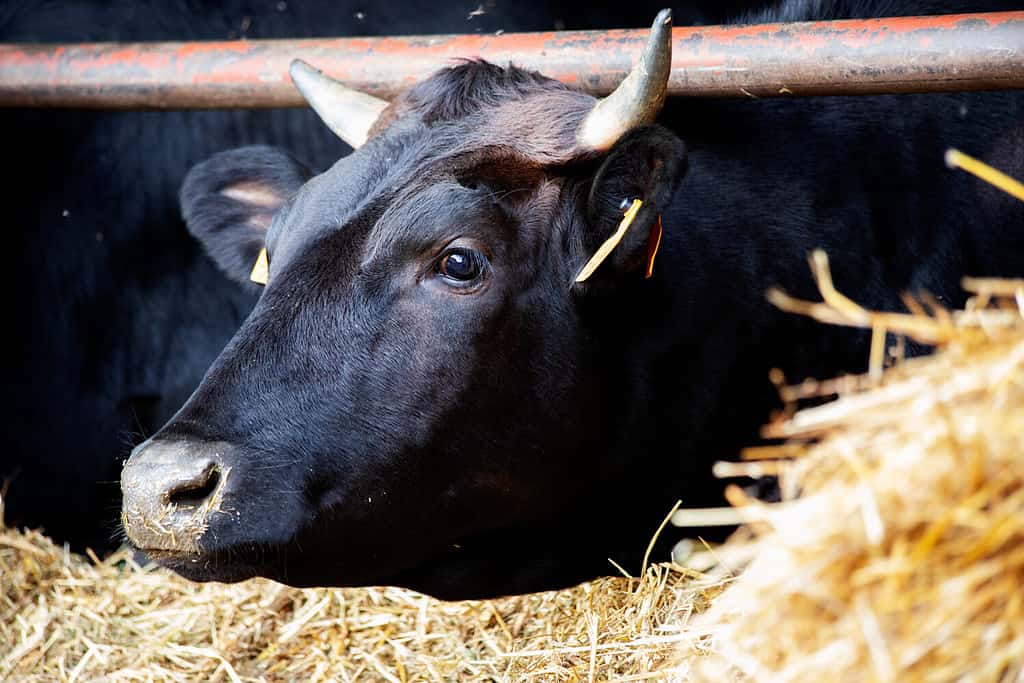
Originally, Wagyu beef came from Japan, with its name directly translating to “Japanese beef.”
©Perpis/Shutterstock.com
If speaking literally, “Wagyu” directly translates to “Japanese beef.” As such, this nation had a lot to do with the cultivation of this now well-known beef. Due to Japan’s old Buddhist influence, the consumption of meat products (including beef) was banned for quite some time. When these bans were lifted in the late 19th century, the nation saw the introduction of more Western practices regarding meat. Still, though, this historical background led to many revering beef as a precious commodity.
When Japan began opening itself to the ideas of the West, it opened its borders, too. This led to a surge of cattle breeds previously unknown to the nation. The cross-breeding of these cattle with native Japanese breeds laid the foundation for what would eventually become known as Wagyu beef.
The flavor and texture of this meat made it an instant classic in Japanese cuisine. Wagyu has quickly become a staple of the country’s culinary repertoire in all of its forms. Cattle in Japan are raised with a great deal of respect and regard for their well-being, and the taste of the meat certainly reflects this. Over time, Wagyu beef, especially in regions like Kobe (ever heard of Kobe beef?), has become a representation of luxury. It has even become, much like things such as wine or caviar, a symbol of wealth in nations outside of Japan. Now, there are over 300 varieties of Wagyu beef, and each has its own quality ranking that ranges from A1 to A5.
The Reason Wagyu Beef is So Expensive
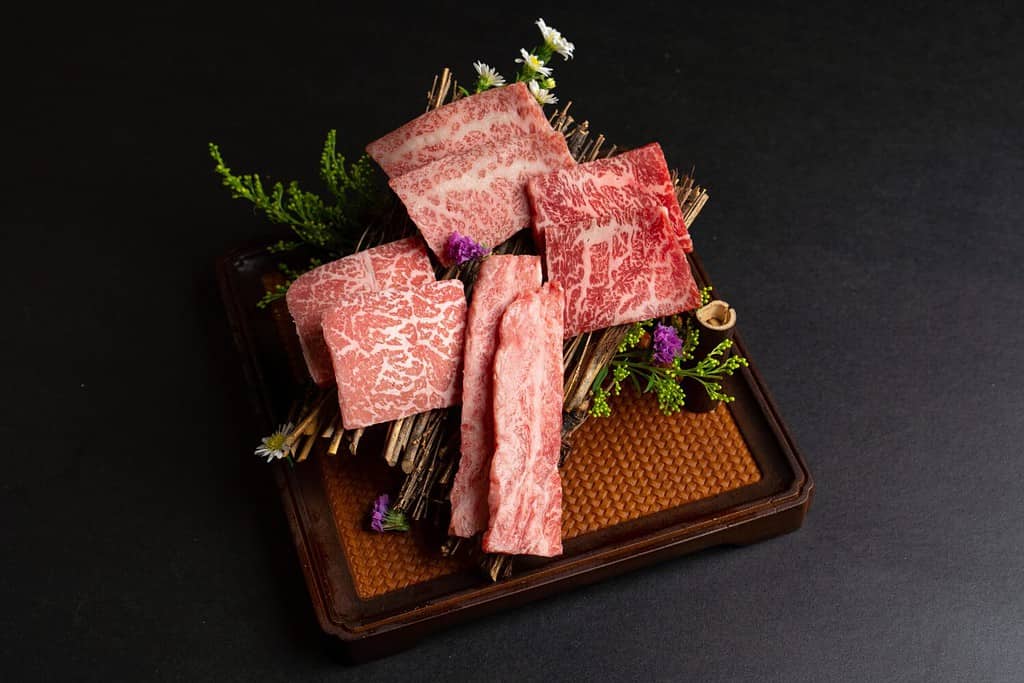
There are quite a few reasons why Wagyu beef comes with such a hefty price tag.
©DannyGan/Shutterstock.com
There are actually a few reasons why Wagyu beef is held above all others. The price of this beef can’t be attributed to one specific reason but rather a variety of factors that work together. Here are some of the most common explanations for Wagyu costs.
Specialized Cattle Diet
Wagyu cows get notably special treatment in a number of ways. First off, they aren’t fed in the same manner as normal cows. They have a high-energy diet filled with things like grains and rice straw to ensure that their meat attains that signature marbling. This kind of feeding is expensive for the owner. Especially when considering that they get three square meals a day and their food is often imported internationally. Sometimes these cows eat better than their human owners!
Hardcore Judgement
Japan is incredibly strict about grading their Wagyu. There is a special score system that measures several factors to determine how high quality the meat is. This system assesses things like:
- Texture/Firmness
- Luster
- Color of the fat
- Brightness
All of these play a hand in determining whether or not a Wagyu cow is “worthy” of being sold for its exorbitant price. One thing is for sure, they make certain you get bang for your buck!
Thorough Caregiving
Alongside their special diets, there are other caregiving factors that set Wagyu meat apart from the rest. While traditional beef cattle get fed for around 120 days, Wagyu cows can be fed and groomed for up to 600 days! This allows more intramuscular fat to develop, resulting in the beef’s desired marbling patterns. Their cattle-raisers know that stress can seriously impact how the final product tastes. That’s why they take extreme caution in keeping their cows as relaxed as possible throughout their lives.
The photo featured at the top of this post is © Filmbildfabrik/Shutterstock.com
Thank you for reading! Have some feedback for us? Contact the AZ Animals editorial team.




